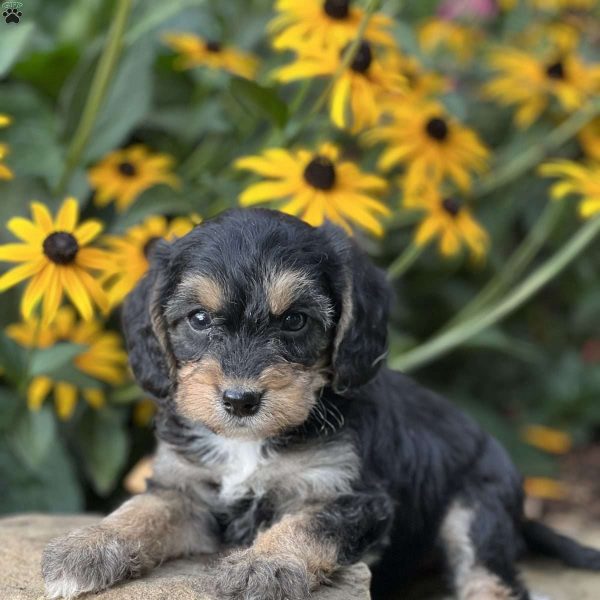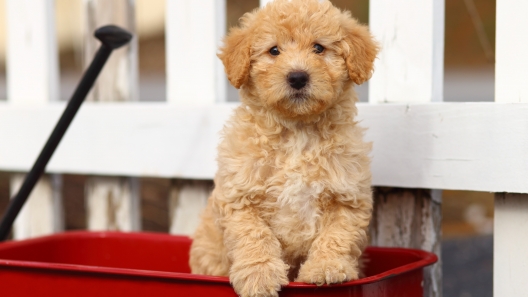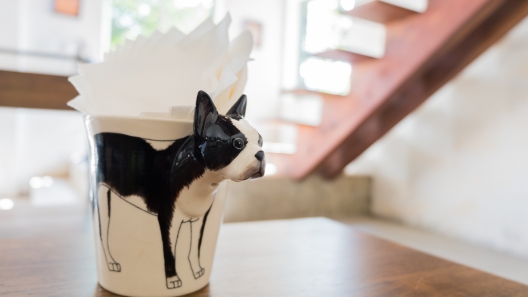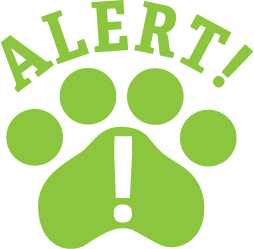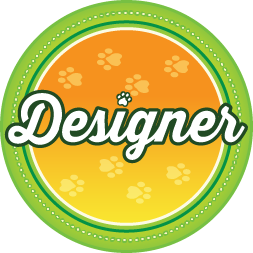
-
Activity Level:
high
-
Shedding Level:
low
-
Grooming Level:
moderate
-
Trainability:
high
-
Good for Novice Owners:
high
-
Adaptability:
high
-
Kid/Pet Friendly:
often
-
Prey Drive:
high
-
Watchdog:
very alert
- Average Size: Small
- Average Lifespan: 10-13 years
- Registered?: other
Poogle Dog Breed Information
Overview
Temperament
Adaptability
Health
Owner Experience
Grooming
Activity Level
Size
Life Span
Did You Know?
The Poogle is a cross between a Beagle and a Miniature Poodle. These little dogs are affectionate and loyal with a friendly, playful, and energetic personality. They love nothing more than being with their families.
Although they are not recognized by the American Kennel Club, the Poogle is recognized by other notable dog organizations. The American Canine Hybrid Club, Designer Dogs Kennel Club, Designer Breed Registry, and more all recognize the Poogle.
The Poogle is an affectionate companion dog that loves to be with their families and thrives on attention from them. They are smart dogs with a playful personality and a loving temperament. They tend to get along well with children and other dogs.
A Poogle can have a high prey drive, so they may need some extra socialization with any smaller pets in the household. They do tend to bark to alert you of strangers and can be protective, especially of children.
Although they can be protective of their family, they are generally open and friendly to meeting strangers as long as they have been properly socialized. Because they can be prone to barking, it’s a good idea to train your dog to stop barking early on to keep it from becoming a nuisance behavior.
Poogles are highly adaptable dogs. They do well in larger homes as well as apartments as long as they get enough exercise. They also adapt well to most climates. As with any dog breed, they are sensitive to heat and may need to bundle up with some winter dog products when temperatures start dropping.
Because they bond so closely with their families and thrive being around them, they do not like to be left alone for long periods of time. If they do not get enough exercise, attention, or mental stimulation, they can become destructive.
Also, since they have a high prey drive and an urge to chase, they should only be let off-leash in securely fenced areas. Although they can master basic commands, including recall, they will sometimes ignore it in favor of chasing something or following an interesting scent.
Although the Poogle is a relatively healthy breed, there are still some potential health conditions that they could inherit from their parent breeds. In the Poogle, potential health issues include eye disorders, luxating patella, Legg-Calve-Perthes, von Willebrand’s disease, epilepsy, hip dysplasia, and hypothyroidism.
Reputable breeding helps prevent a lot of these issues because reputable breeders will screen their dogs to avoid passing preventable health issues on to puppies. So, make sure you ask them about the health and genetic history of both of the parents. You can also ask about any health tests or clearances that have been done.
Both of the Poogle’s parents are highly intelligent dog breeds that pick up on things quickly and are eager to please. This makes the Poogle a highly trainable dog that is a good fit for owners of all experience levels.
They respond best to consistent training focused on positive reward and praise. Even if you don’t need them, puppy training classes are a great idea. Not only do they reinforce training and strengthen the bond you have with your puppy, but they also often offer great opportunities to socialize a puppy.
A Poogle tends to have a short to medium-length wavy coat that can be a variety of colors. If they have a shorter coat, they will just need a weekly brushing and the occasional bath. If they have a longer coat, they will need to be brushed a few times a week at least, if not daily, to make sure tangles are removed. They may also need to be clipped into a Puppy clip or a Poodle clip, in which case they’ll need to visit the groomer every 4-6 weeks.
In addition to coat care, you will also need to take care of your Poogle’s nails, ears, and teeth. Cutting nails once or twice monthly is usually enough to keep them from growing too long. If you’re visiting the groomer regularly, they can likely take over this task from time to time. But, you may still need to trim nails between visits if your Poogle’s nails grow quickly.
On a weekly basis, it’s a good idea to check your dog’s ears. They should be clean, dry, and free of debris, pests, or irritation. You can carefully clean your dog’s ears if needed to help prevent ear infections. And, if you see anything concerning, you can get to the vet early.
Gum disease is one of the most common health issues in dogs. As a small dog breed, your Poogle is even more prone to developing it later in life. This makes practicing good dental care for dogs early and throughout your dog’s life essential. Brushing or using an enzyme toothpaste daily in addition to cleanings at the vet as needed are ideal.
A Poogle tends to sit in a high-energy range. They need a lot of daily activity to be happy and healthy. Daily walks plus some playtime and some time to run are a good start. And, they will likely be up for more activity if you are.
These dogs tend to be athletic and hardy. So, once puppies finishing growing and developing, you can try a bunch of different activities to see what they like to do. Most of the time, they will just be happy to be doing something with you.
A fully-grown Poogle usually stands 9-16 inches tall and weighs 11-25 pounds. Their size can range larger if they have a Standard Poodle parent instead of a Mini Poodle parent.
Poogles generally live for 10-13 years.
Although this mixed breed is often called a Poogle, they are also sometimes called a Poogle Hound, Beaglepoo, Beagledoodle, Beagapoo, and Beapoo.

